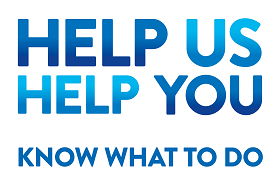What to do about…
This page contains advice about routine vaccinations and what to do if you, the person you care for or your child becomes unwell and you are pregnant or a cancer patient, or if you suspect you or someone you care for is having heart attack or stroke.
Suspected heart attack?
If you think you or a family member are suffering with the symptoms of a heart attack you must dial 999 immediately.
If you or a family member develop symptoms such as heavy or tight chest pain that may spread to your arms, neck or jaw, or make you breathless, sick, sweaty or light-headed and that doesn’t go away, this could be caused by a heart attack. Dial 999 immediately.
Suspected stroke?
If you think you or a family member are suffering with the symptoms of a stroke you must dial 999 immediately.
You can spot the symptoms of a stroke by using the FAST test:
Face - is the face drooping / fallen on one side? Can they smile?
Arms - can they raise both arms and keep them there?
Speech - is it slurred?
Time to call 999 if you see any of the above signs
Pregnant women
If you are pregnant it is important that you still attend your antenatal appointments and continue to seek advice from your midwife or maternity team.
If you are worried about your health or the health of your unborn baby, please contact your midwife or maternity team.
Parents of young children
If you are worried about the health of your baby or child, please call 111.
If it’s a serious or life-threatening emergency, call 999
Cancer patients
If you have a symptom that you are worried about, you must contact your GP Practice.
Your clinician will discuss with you the benefits of starting or continuing your cancer treatment against the increased risks of contracting coronavirus.
You can also find the latest guidance for people with cancer from Macmillan here.
Routine vaccinations
It is important that you or your baby or child still have routine vaccinations. They protect against serious and potentially deadly illnesses and stop outbreaks in the community.
If the person needing vaccination has coronavirus symptoms or is self-isolating because someone in the household is displaying symptoms, please contact your GP practice for advice.





